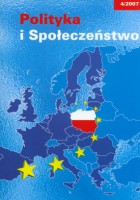O JĘZYKU WSPÓŁCZESNEJ POLITYKI
About the language of contemporary politics
Author(s): Kazimierz OżógSubject(s): Politics, Communication studies
Published by: Wydawnictwo Uniwersytetu Rzeszowskiego
Keywords: language of contemporary politics
Summary/Abstract: The year 1989 spelt in Poland and in many other European countries, which were in the orbit of Soviet influence, the beginning of revolutionary changes: political, economic, social and cultural ones. These changes influenced also the Polish language which has changed radically over the last 20 years with the greatest changes occurring in the language of politics. Nowadays, the language testifies to a diversified way of talking about public affairs, it constitutes a spectrum within which different registers and styles merge. The instability of the Polish political scene, abundance of political parties, and a constant flux in the sphere of parliamentary groupings and government coalitions are found among the most important reasons for this linguistic variety. In the language of contemporary politics the lexis is particularly extensive and includes thousands of words referring to the public life of the Poles. The major point of the article is the claim that in reality the language of contemporary politics is getting impoverished, it loses its elegance and becomes more and more primitive. The author looks for an explanation to this pauperization in the trends of contemporary culture. He shows main features of the phenomenon: a turn towards commonness and informality, emotionality of expressions, hermetic vision of the world, impossibility of a dialogue and an increase in populist attitudes.
Journal: Polityka i Społeczeństwo
- Issue Year: 2007
- Issue No: 04
- Page Range: 103-111
- Page Count: 9
- Language: Polish

